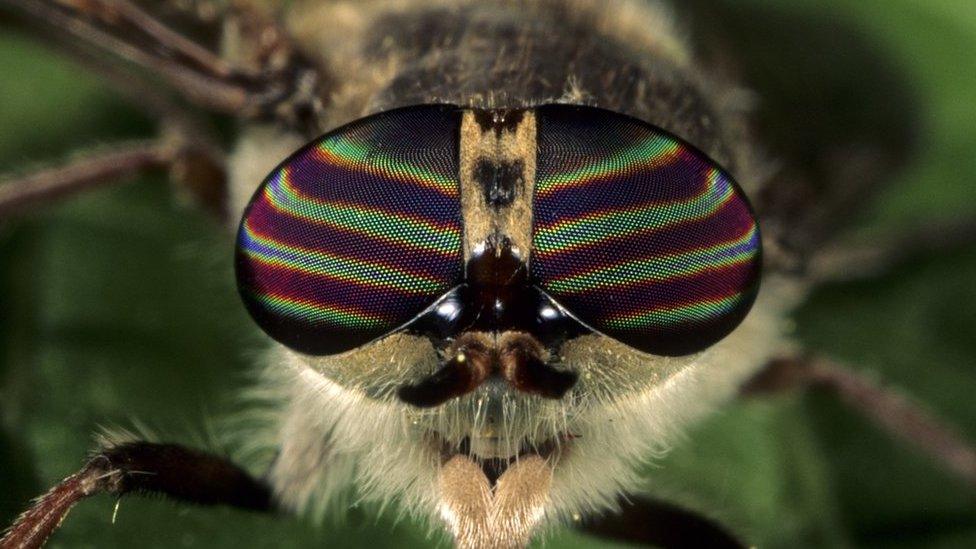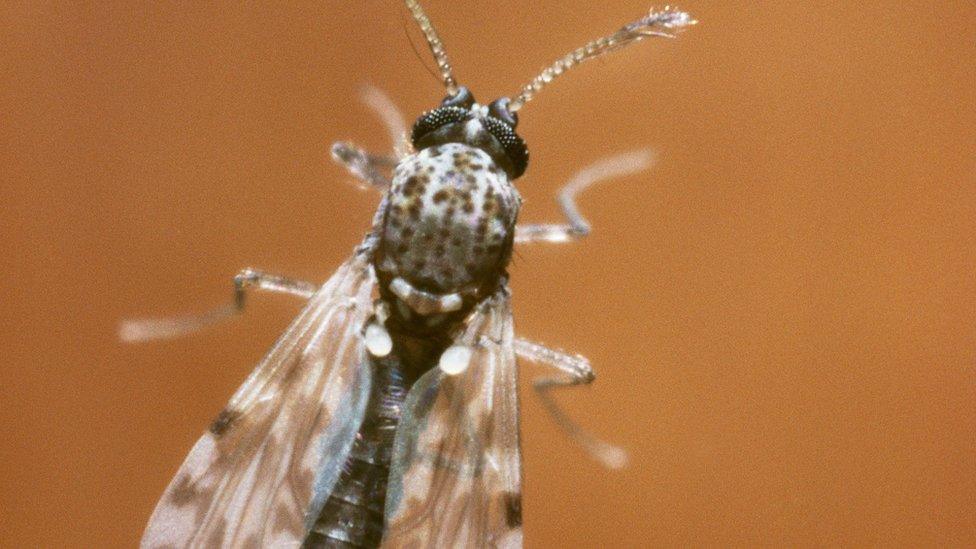'Rise' in horsefly bites in Scotland amid warm weather
- Published

Female horseflies suck blood to give them protein for egg-laying
More people are being bitten by horseflies due to the long spell of warm weather, according to the Royal Pharmaceutical Society in Scotland.
Also known as clegs, the insects' bites can in some cases become infected and require medical attention.
The society's Aileen Bryson said it had received reports of more people coming in contact with the flies.
She said this was because people were spending more time outside in the sunshine, and having more skin exposed.
Invertebrates charity Buglife said that while clegs were seen as a menace, they played a part, like other insects, in natural habitats.
It said, anecdotally, there may be more horseflies. The charity added that Highland biting midges, along with other aquatic insects, were struggling with the warm, dry weather.
Loose clothing
Ms Bryson told BBC Radio's Good Morning Scotland programme: "We do have reports of more people coming in contact with horseflies, especially at weekends.
"At the moment, because the weather is so warm, everybody is exposing a lot more skin than as normally in Scotland and clegs will bite legs and arms."
She said horsefly bites can be more painful than midges', and can result in red, fluid-filled blisters.
In most cases pharmacists can offer advice on treatments, she said.
Ms Bryson added that insect repellents and wearing loose summer clothing can help people to avoid being bitten.

Midges are fairing less well in the warm weather, says the charity Buglife
Andrew Whitehouse, of Buglife, said it was female horseflies that bite, sucking blood for the protein it contains. They need protein for egg laying.
He said it was not possible to confirm if there were higher numbers of clegs this summer because no monitoring was done of the flies, and there was little other data available on them.
Mr Whitehouse added that there were likely to be fewer midges due to the long spell of dry weather.
He said: "Midge breed in wet places. Midges and a lot of other aquatic insects won't be doing so well."
Outdoor pursuits body, Mountaineering Scotland, said in warning issued on Monday about the warm weather that it had found clegs to be "thriving".